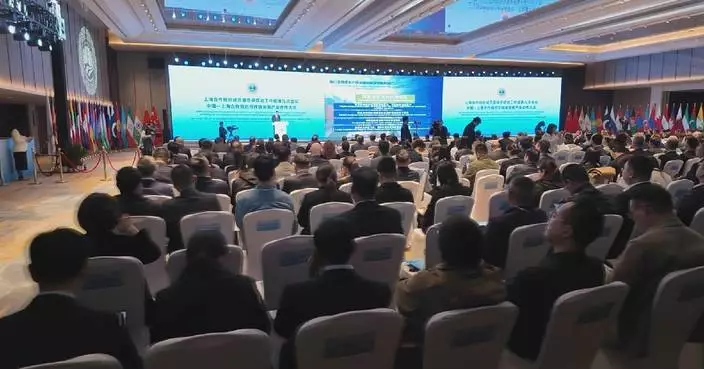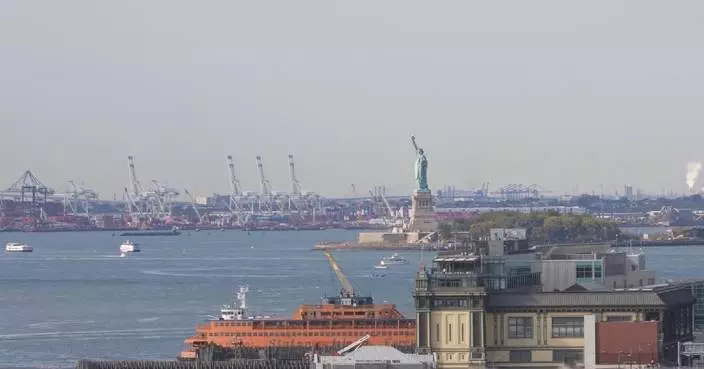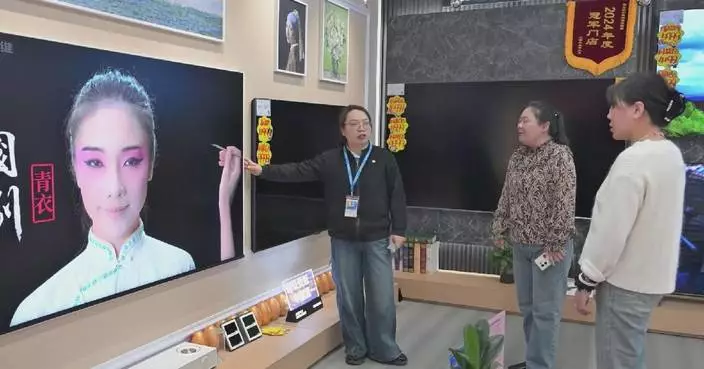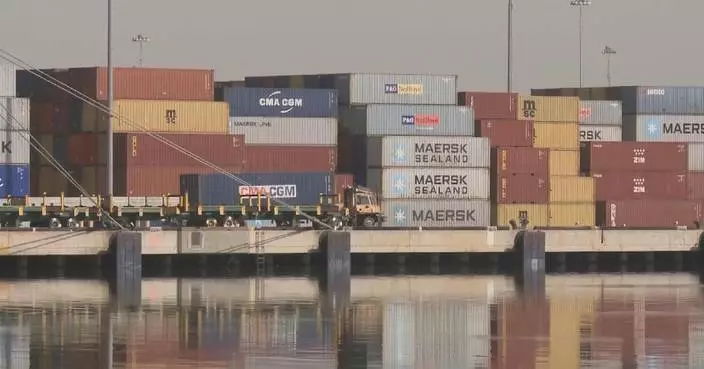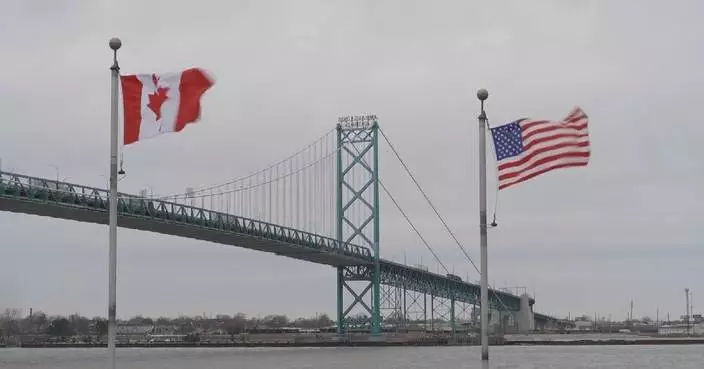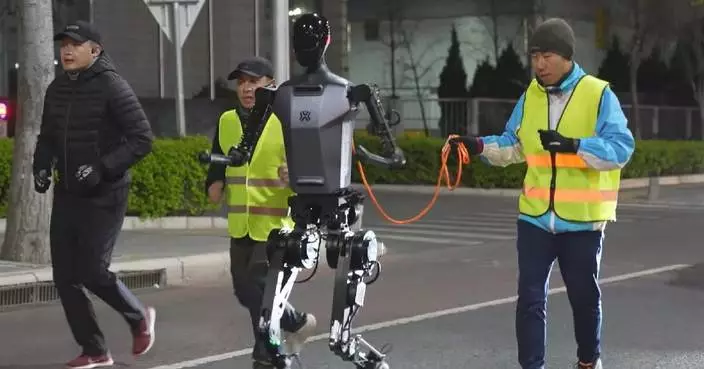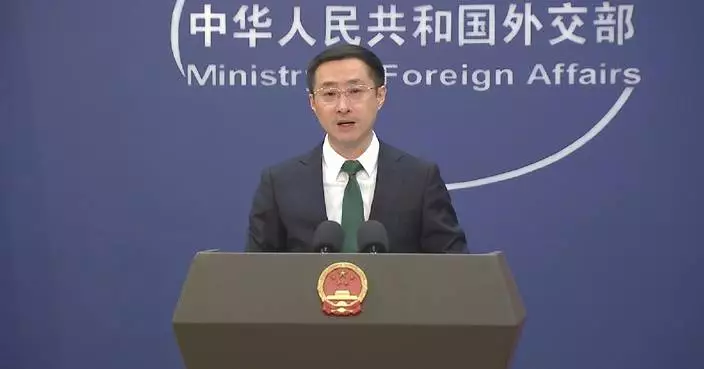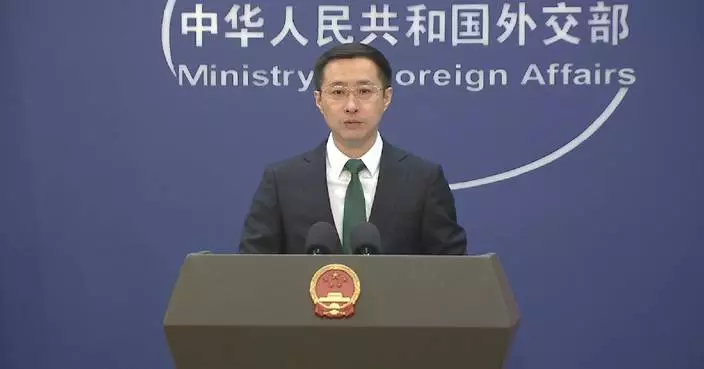Trade and economic experts have harshly criticized the United States' decision to impose sweeping "reciprocal tariffs" on imports from all trading partners, warning of international backlash as well as an impending increase in U.S. domestic inequality.
Amid growing international concern, U.S. President Donald Trump on Wednesday signed an executive order introducing a 10-percent "minimum baseline tariff" on all imports, with higher rates for selected nations. The administration claimed the tariffs would level the playing field for American businesses, but experts disagree.
Speaking during a panel discussion on China Global Television Network (CGTN), Radhika Desai, director of the Geopolitical Economy Research Group, warned that the policy would ultimately hurt ordinary Americans.
"The one thing we can be sure of is that these tariffs and the revenue they will allegedly bring to the U.S. government will be used as a justification to give huge tax cuts to the rich in the United States. And I think this is going to be the first most important consequence and the most certain consequence of this, that is, ordinary Americans, working Americans will pay for a tax cut that will be enjoyed by a small number. But I would say that the long run effect of this is bound to be that more and more countries will shift their trade away from the United States," said Desai.
Her comments were echoed by fellow panelist Takuji Okubo, who highlighted the broader geopolitical influence of the policy.
"Economically, obviously it's bad. But I think this is one challenge. This challenge against Trump's tariff policy is, I think this actually provides a common ground between Japan, China, South Korea and of course the EU. So this is a common challenge for all these countries where we can have some uniting ground," said Okubo, managing director and chief economist at Japan Macro Advisors Inc.
"From a geopolitical point of view, this could actually help ease the tension in Asia," he added.

Experts slam U.S. tariff move as harmful, divisive
As the uncertainty surrounding the Trump administration's tariff policies fuels inflationary fears in the United States, a number of consumers have resorted to panic buying amid growing concerns that costs could shoot up.
With price hikes expected on goods such as automobiles, beauty products, and even on everyday food items, many residents say they have been rushing out to stock up before prices climb even further.
In recent street interviews with the China Global Television Network (CGTN), New York residents shared how the impact of the ongoing tariff war is affecting their daily lives.
"Actually, I already have. I've already started stocking up. My mother has a whole stockpile, and she's panicking. But I told her we're going to be okay, as we live in New York City," said Amelia Guilford, a retail worker who was visiting her mother in the city.
With many anticipating a rise in inflation, many Americans are concerned about the long-term financial impact, and say they are now being more prudent with their money.
"I think we have to [spend more carefully]. Because otherwise you're going to be in real trouble economically or in debt, because if you spend more than what you get, that's going to be a lot of trouble," said Jose Pena, a janitor.
The tariffs, which directly affect the price of imported goods, have led to predictions of significant price increases, particularly on goods coming from China, which has been the biggest target of the tariffs.
"[Products] from China are going to be more expensive. I cannot exactly name what kind of products one by one, but every one that comes from China is going to be more expensive, without a doubt," said Pena.
Public frustration is evident, with some questioning the logic behind U.S. President Donald Trump's risky and unpredictable pursuit of tariffs on other countries, as the debate over the long-term consequences of the policy intensifies.
"I think he's just making enemies, and I trust him not. And I think he's making a mess of everything. I think it's all going to come around and flip back. The changes he's doing are completely unsustainable," said Lois Adams, a nurse, as she expressed her disapproval of Trump's approach.
Ordinary Americans are facing up to the harsh reality of rising prices and remain anxious about the future economic impact of the continuing trade war.
Jerome Wilkins, a security worker, voiced concerns about the broader societal implications of the tariffs, warning it will again be the poorest people who suffer the most.
"I think that the tariffs are horrible. I think that it's like privatizing America, and instead of America being a country for the people, it's a corporation for the rich. And it's just for them to get richer, while the poor get poorer. And that's basically how I feel," said Wilkins.
Meanwhile, the Chinese government announced it would raise tariffs on all imported U.S. goods from 34 percent to 84 percent, effective Wednesday, in response to the U.S. decision to escalate its "reciprocal tariffs" on Chinese products, further adding to the economic strain.
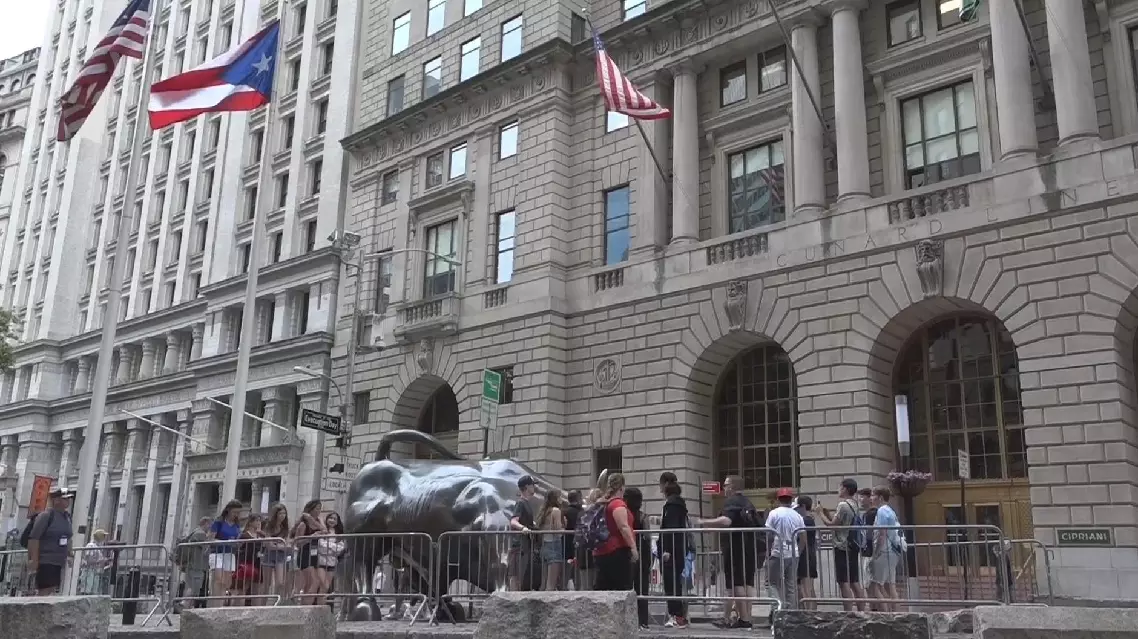
Tariff war triggers panic buying in US, raising public concerns over rising costs





